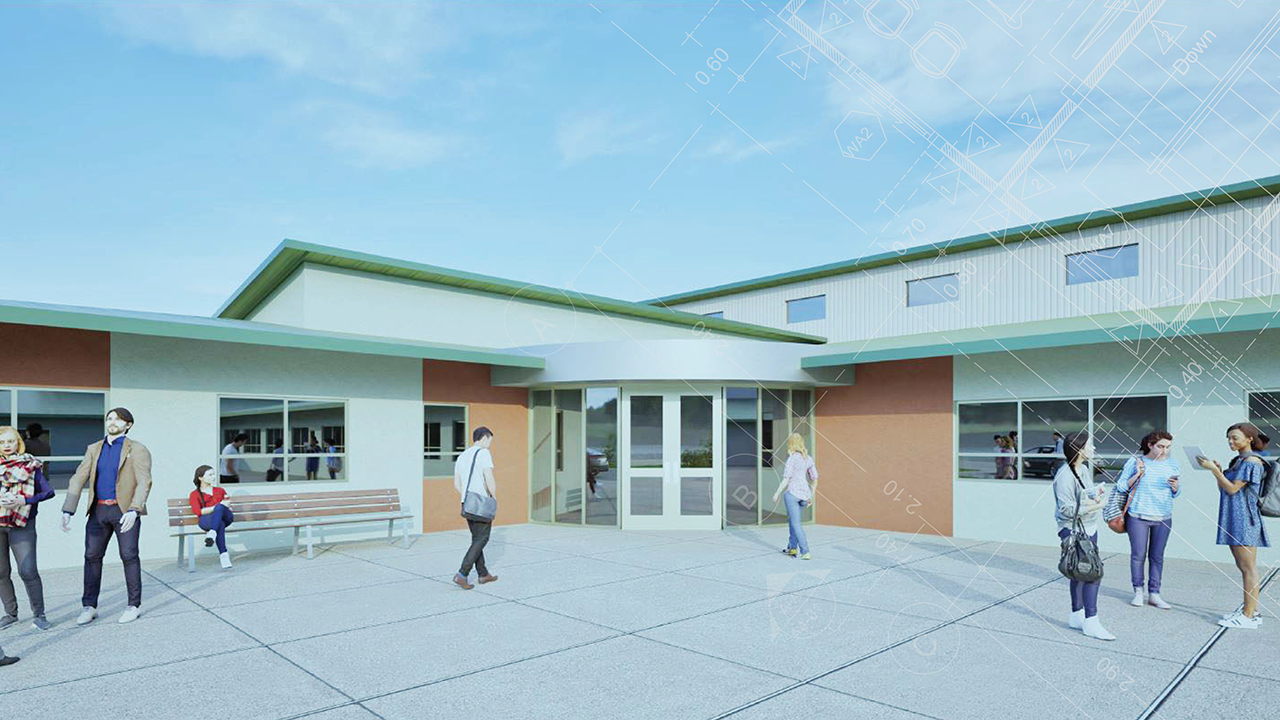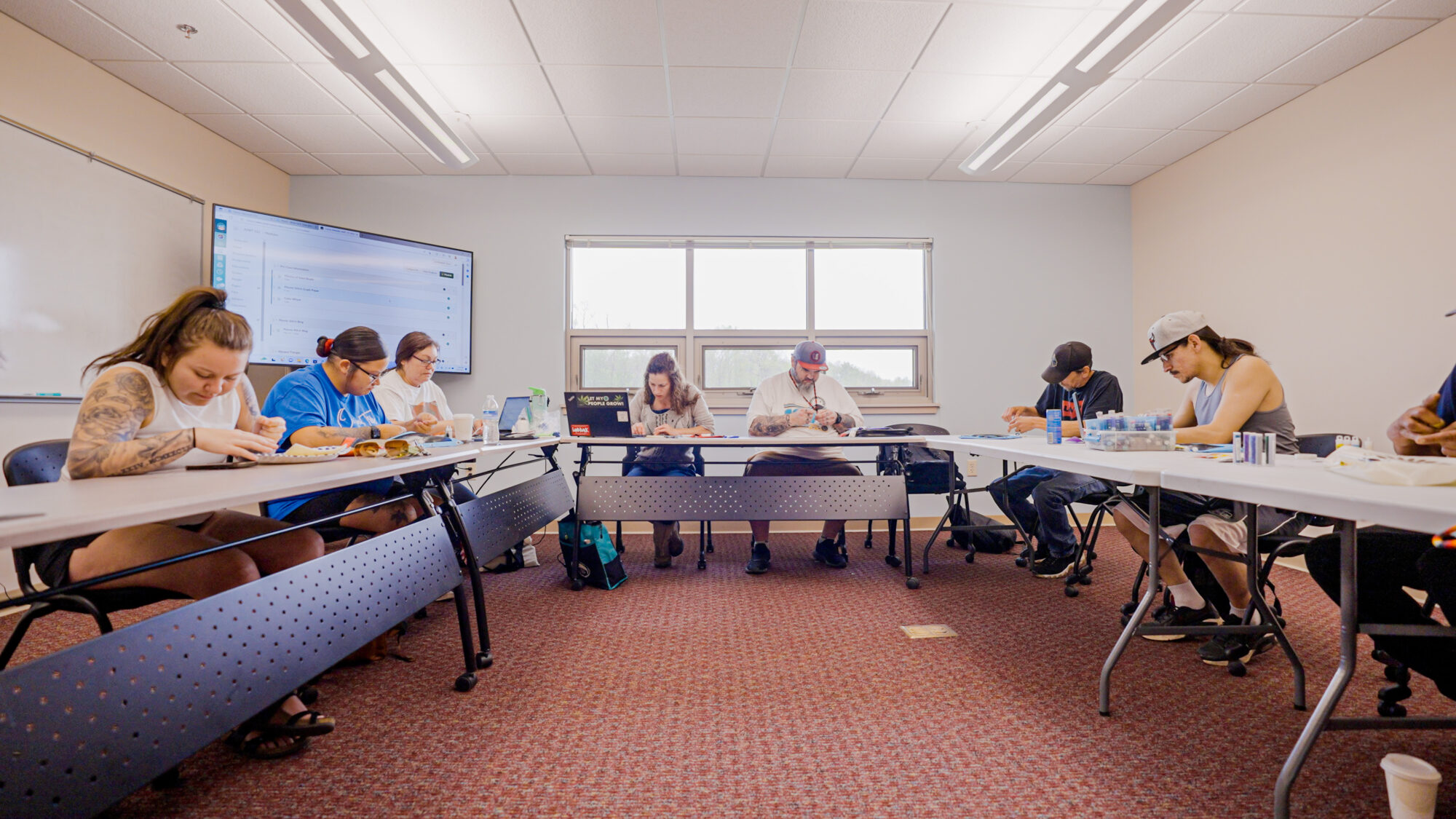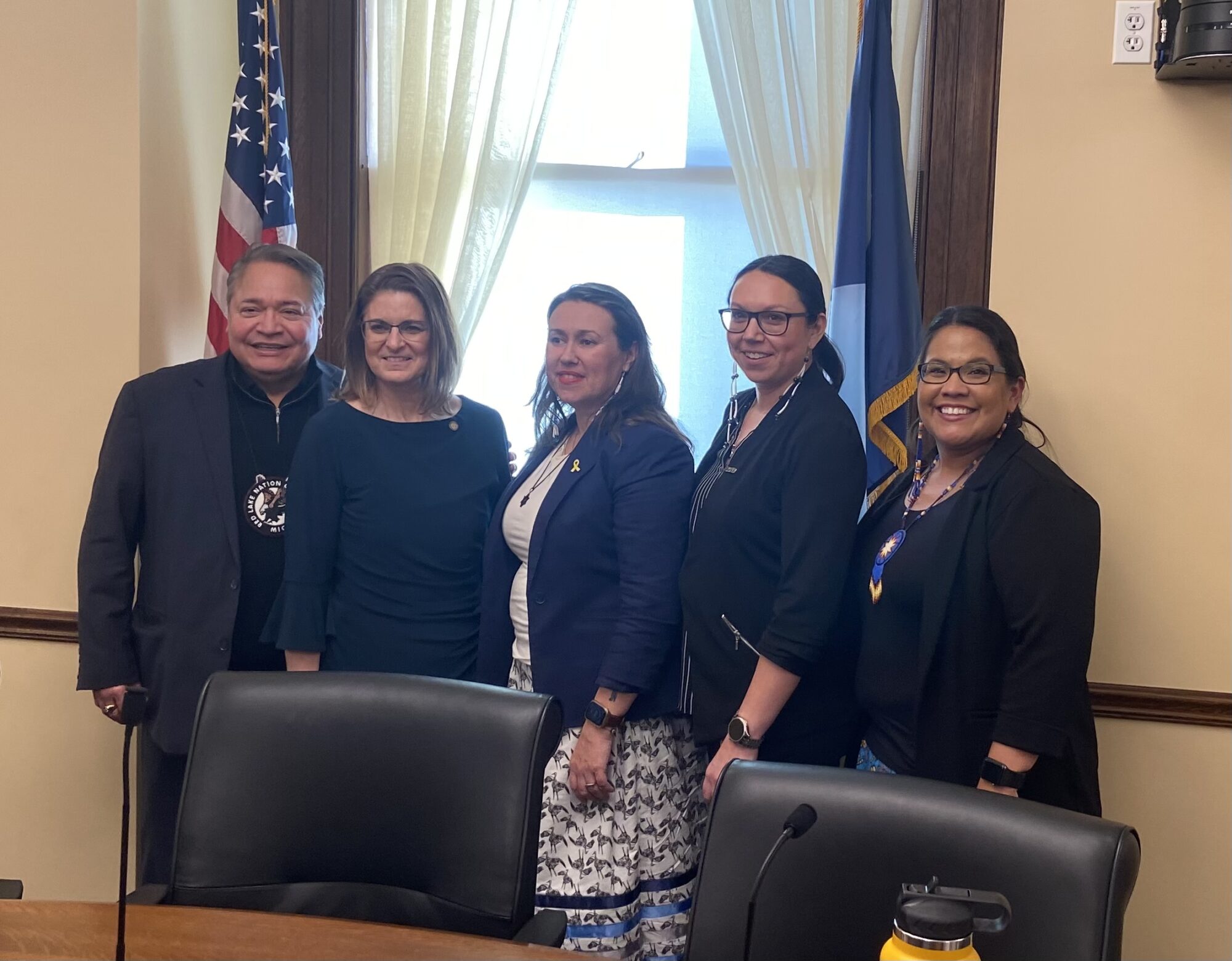
Something transformative is happening in Mahnomen, Minnesota, and it’s not just the solar panels outside the White Earth Tribal and Community College’s (WETCC) campus. It’s the foundation of a clean energy future being laid for northern Minnesota’s communities and workforce.
Fresh Energy is proud to be collaborating with WETCC to help advance their plan for an innovative Trades Building project — a game-changing initiative to train the next generation of skilled tradespeople who will build Minnesota’s clean energy future across northern Minnesota, all while creating economic opportunities in rural communities.
It’s a simple idea: Minnesota needs skilled workers to power its clean energy transition. We need lots of tradespeople — electricians, solar installers, HVAC technicians, and energy auditors — to build the clean energy systems for our electric grid, homes, businesses, and transportation systems. With tradespeople in high demand, especially in rural Minnesota, we need more certification programs and job training opportunities to grow clean energy workforce development. That’s where WETCC comes in.

The WETCC Trades Building would create a new wing on WETCC’s campus to train students for high-demand careers, including its NABCEP-certified solar program, energy auditing, HVAC and electrical work, and traditional Anishinaabe trades. This would help to train more students with the skills they need to meet northern Minnesota’s demand for trades work.
Fresh Energy is working with WETCC with their goal to secure funding at the Minnesota Legislature for the project, which would equip Minnesotans with trained professionals helping to build our clean energy future, from solar systems to home weatherization and electrification.
The program addresses a critical gap: For residents of Mahnomen and surrounding communities, the nearest technical school is over an hour’s drive away, putting skilled trades careers out of reach for many. Offering a new training program in this region of Minnesota, which also has high unemployment and limited career opportunities, would allow many more Minnesotans to train and successfully enter the clean energy workforce.
“This is a win-win,” explains Anna Sheppard, WETCC president. “Our communities gain the skilled workforce to drive economic growth, while our local and surrounding community gain access to family-sustaining careers right here at home.”

However, WETCC needs funding from the Minnesota Legislature to construct the new wing on their campus. The project is shovel-ready with secured land, completed architectural renderings, and established construction budgets. Training could begin as early as Fall 2027, creating a deep bench of skilled workers ready to build and maintain the infrastructure of Minnesota’s clean energy transition.
Rural Minnesota faces unique challenges in the energy transition, from aging infrastructure to limited economic opportunities. Workers are needed to install new renewable energy systems and integrate them into the electrical grid. Buildings need to be weatherized and rewired to accommodate climate-friendly appliances and HVAC systems. Electric vehicle charging stations need to be built. The WETCC project directly addresses these challenges by training local residents to implement clean energy solutions while building vibrant, resilient communities.
“Fresh Energy is working to ensure the clean energy transition happens in every corner of Minnesota,” said John Vaughn, managing director, community and economic development at Fresh Energy. “We need skilled workers in every community to make it happen. This program would benefit individuals, the community, and our state’s future.”
The future looks bright for northern Minnesota. The energy transition provides new economic opportunities for rural Minnesotans to have family-supporting careers in the trades rebuilding our infrastructure, electric grids, homes and businesses, and transportation system to run on carbon-free electricity that we make right here in the Midwest. It’s a future with less air and water pollution, generating new careers in every corner of the state, and ensuring Minnesota mitigates the worst effects of climate change.
As Minnesota works toward ambitious climate goals, initiatives like the WETCC Trades Building remind us that the path to decarbonization isn’t just about reducing emissions — it’s about creating a more equitable, prosperous future for all communities across our state.
